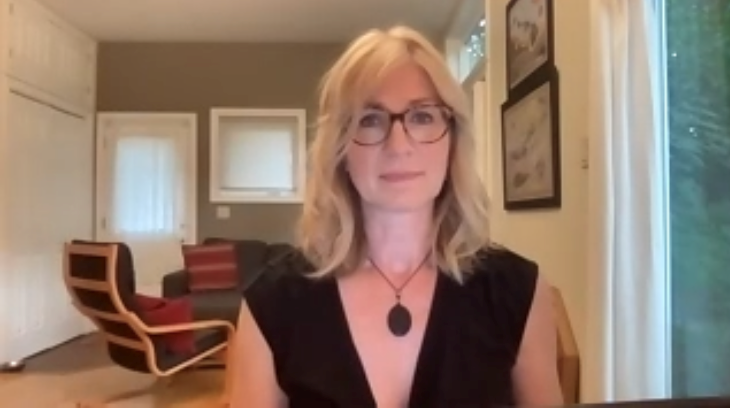It’s no secret that teens have been facing a unique challenge during the pandemic as they navigate critical years of growth while also coping with the world in crisis around them.
On Tuesday evening, Canadian Mental Health Waterloo Wellington and PCMH-Guelph chapter hosted a community webinar, The impact of COVID-19 on the mental well-being of teens and what teens need to do well, with guest speaker Susan Gross, a school and clinical psychologist currently working with Waterloo Region District School Board and CMHA WW.
Gross said in trying to understand the impact of the pandemic, mental health professionals quickly learned that not everyone is affected in the same way and people are disproportionately affected based on age, health, gender and race.
“It's been challenging to watch our youth navigate all the news, the detours and losses throughout this year,” said Gross.
She said the pandemic has been especially hard on youth because their emotional regulation and flexible thinking is still under development, their social independence and social identity is in development and they have unique life goals and a unique sense of time. She also said that risk-taking, creativity and exploration among teens is normal.
“It's not just the practical realities and fear about COVID that our youth are managing, but also the worries that they might have focused on before the pandemic,” said Gross about global issues such as climate change and the Black Lives Matter Movement on top of just learning who they are and what they want to be.
To look for signs of mental health struggles in youth, Gross said to watch out for extreme outbursts or excessive mood swings, worry leading to stomach and body aches, persistent nightmares and lack of sleep, an avoidance of formerly enjoyable activities, becoming unusually quiet or preoccupied, a change in appetite and a significant change in behaviour that is not readily explained.
She also added that it's important to consider risk factors which could be anything such as a pre-existing mental health condition, a loss of a loved one or an experience of racism and bias.
Members of CMHAWW’s YouthTALK shared testimonies from teens who struggled getting back to in-person school after a long period of isolation last year, how they lost determination for school, how they experienced stress eating, and needed to feel understood by adults. However, they also shared that the pandemic brought some good changes as well such as slowing down and focusing on their mental health.
“So naturally, we're worried because we know that stress becomes toxic when it's frequently prolonged and uncontrolled. And we know that living in a prolonged state of uncertainty and stress, about health, schooling, social relationships, feeling not in control can create challenges and can eventually make it more difficult to learn,” said Gross.
Gross stressed on the importance and meaning of resilience which is not to toughen up but, rather is it steering through adversity moment by moment, seeking out resources, and dialing out on the inner critic and showing self-compassion.
“One of the teens said that the biggest thing I found throughout COVID that I needed from my parents is understanding being a teen especially when dealing with mental illness. Doing daily basic activities has become increasingly difficult and exhausting. We are all doing our best right now, and we need parents to understand that our best looks different now, and that's okay,” said Meredith Hutton, a Waterloo Region youth.
Gross said youth need to feel heard and accepted to help regulate their emotions, build flexibility and grow their identity. She also stressed the importance of human connection and said parents need to be present and normalize their childrens’ feelings by letting them know it's okay to feel a certain way. It's also important to build coping strategies to help them navigate through their emotions.
“Sometimes we think our teams don't need us as much and maybe they don't for those practical, concrete things, but they still need us for emotional and more existential support,” said Gross.
